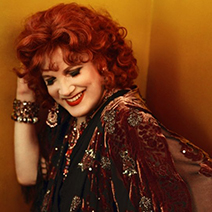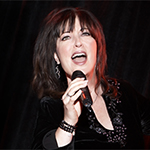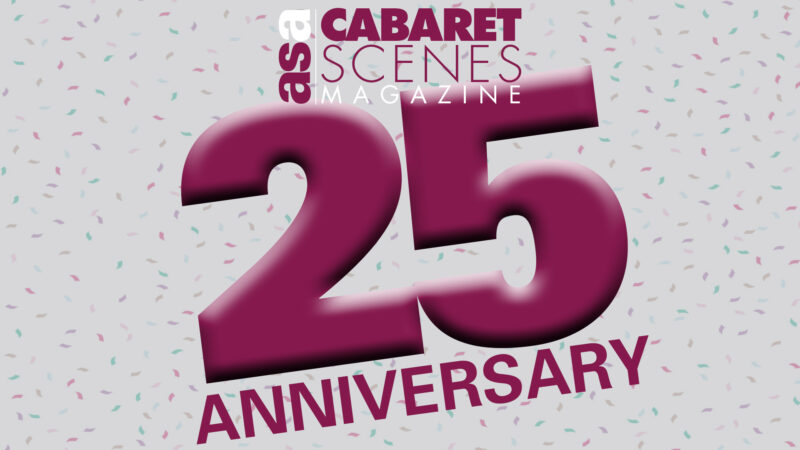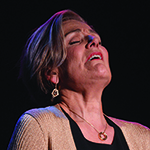Charles Busch
The Ultimate Playlist
Feinstein’s/54 Below, NYC, June 10, 2016
Reviewed by Joel Benjamin for Cabaret Scenes
 Charles Busch, who has raised drag to diva status, has developed a cabaret act that shows him at his most personal and revealing: The Ultimate Playlist. Each song seemed to resonate in him, giving us a hint of the man under the glamorous façade of wigs, makeup and gowns.
Charles Busch, who has raised drag to diva status, has developed a cabaret act that shows him at his most personal and revealing: The Ultimate Playlist. Each song seemed to resonate in him, giving us a hint of the man under the glamorous façade of wigs, makeup and gowns.
To be sure, he was the diva in his delightfully mannered opening number, “Taking a Chance on Love” (Duke/La Touche/Fetter), but his soft, conversational interpretation of “Bill” (Kern/Wodehouse/Hammerstein) was special, beyond conjuring Helen Morgan.
“The Summer Wind” (Meier/Mercer) and “That Sunday, That Summer” (Sherman/Weiss) combination was a meditation on pleasant memories, while a Sondheim medley of “With So Little to Be Sure Of” and “Too Many Mornings” was heartbreaking in its mature look at life, sung with great feeling.
On a more optimistic note was “What a Lot of Flowers” (Bricusse) and “Hurry! It’s Lovely Up Here” (Lane/Lerner) which was stirred by a sweet story about watering the plants of his favorite, very influential and understanding aunt.
Busch and his extremely supportive musical partner/Musical Director, handsome Tom Judson, spoke of knowing each other for decades and about their adventures touring this and other shows, which led to an upbeat “The Road to Morocco” (Van Heusen/Burke), the closest to a campy interpretation on the program.
He amusingly reprised the character of the over-the-top cabaret chanteuse Miriam Passman for “A Parade in Town” (Sondheim) and “Sail Away” (Coward).
Busch somehow found just the right amount of pathos in “Those Were the Days” (Raskin/Fomin), his eyes glowing with memories of all the old, beloved cabaret acts and venues.
buy strattera online https://hiims.in/assets/images/new/strattera.html no prescription
He ended with a song dedicated to Judy Garland (on her birthday) after telling a story about how holding a corded microphone, the kind Garland was famous for treating with her eccentric gestures, caused him to morph into Garland, gestures included. “Rainbow Connection” (Williams/Ascher) brought the show to a sweet, but unsentimental close, touched by the gentle humor of Busch’s evocation of the legendary singer whose death may have inadvertently led to the Gay Rights Movement.





